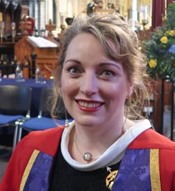The Use of An Anthropomorphic Prostate Simulator in a Transrectal Ultrasound Imaging Training Workshop for Medical Physicists
A Doyle1,2, D Cody1, D King3, F Sullivan4,5, J Browne1,6*, (1) School of Physics and Clinical and Optometric Sciences, Medical Ultrasound Physics and Technology Group, Centre for Industrial and Engineering Optics, Focas, Technological University Dublin, IR, (2) RCSI SIM Centre for Simulation Education and Research, RCSI University of Medicine and Health Sciences, IR, (3) Blackrock Clinic, Dublin, IR, (4) Prostate Cancer Institute, National University of Ireland Galway, Galway, IR, (5) Department of Radiotherapy, Galway Clinic, Galway, IR, (6) Department of Radiology, Mayo Clinc, Rochester, MN
Presentations
MO-FG-201-3 (Monday, 7/11/2022) 1:45 PM - 3:45 PM [Eastern Time (GMT-4)]
Room 201
Purpose: Although ultrasound forms a critical component of prostate brachytherapy (PBT) planning and treatment, ultrasound training is not required as part of radiation oncology training programs, and performance is not objectively assessed. Physical simulation training can provide a structured approach to this training with suitably challenging clinically applicable training devices that replicate the complex anatomy of the male pelvis and prostate. This study describes the design and preliminary evaluation of a simulation-based transrectal ultrasound (TRUS) imaging training workshop developed for medical physicists involved in Low Dose Rate (LDR) PBT.
Methods: This was a prospective study involving nine medical physicists, invited from medical physics departments routinely involved in LDR trans-perineal permanent seed PBT in oncology centers. The study incorporated a high-fidelity anthropomorphic prostate brachytherapy TRUS training simulator and a TRUS imaging module with a blended learning pedagogical approach, to address TRUS image optimization and managing image quality during the PBT TRUS procedure. This was a mixed methods study, collecting pre and post quantitative data from participants through MCQ questions and questionnaires, and qualitative data was collected through two focus groups.
Results: The results demonstrated there was a significant improvement in knowledge, with an average increase in MCQ score of 61% (P<0.0002), there was a 46% (P<0.0001) average increase in the participants understanding of TRUS scanner operation, and an increase of 36% (P<0.001) in participants readiness to optimize image quality and mitigate image artefacts.
Conclusion: This study suggests that there is a benefit in offering a simulation training workshop to medical physicists involved in LDR prostate brachytherapy. The novel high-fidelity anthropomorphic prostate brachytherapy transrectal ultrasound training simulators are useful for training purposes because they provide a simulated environment to practice ultrasound image optimization for PBT image guidance, outside the surgical environment without direct exposure to patients.
Funding Support, Disclosures, and Conflict of Interest: Dr Andrea J Doyle would like to acknowledge the Dean of Graduate Fiosraigh Research Programme, awarded by the Dublin Institute of Technology (now Technological University Dublin) and the Young Investigator Grant awarded by the Irish Association of Physicists in Medicine, for their funding of this work.
Keywords
Not Applicable / None Entered.
Taxonomy
Not Applicable / None Entered.
Contact Email



